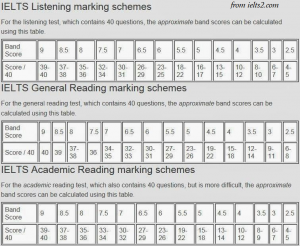رایتینگ آیلتس موضوع پزشکان و مهندسان باید در کشوری که آموزش دیده اند
IELTS Essay About professionals like doctors and engineers work where trained
یک نمونه رایتینگ Task 2 آیلتس در سطح نمره 9 درباره موضوع “پزشکان و مهندسان باید در کشوری که آموزش دیده اند کار کنند” از انواع رایتینگ های Agree or Disagree یا مدل موافق یا مخالف را به همراه تحلیل گرامر و واژگان آکادمیک این سمپل خواهیم داشت. همچنین عزیزان میتوانند از تاپیک “پزشکان و مهندسان باید در کشوری که آموزش دیده اند کار کنند” بعنوان یک موضوع لکچر جذاب و جدید یا موضوع رایتینگ پیشرفته انگلیسی استفاده نمایند. 500 سمپل از جدیدترین موضوعات رایتینگ آیلتس (سال 1403) با جواب نمره 9 پیشنهاد بعدی ما به شما عزیزان است.
توضیح کوتاه درباره موضوع “پزشکان و مهندسان باید در کشوری که آموزش دیده اند کار کنند”
این موضوع به بحثی دربارهی تعهد حرفهای و آزادی شغلی متخصصان در حوزههایی مثل پزشکی و مهندسی اشاره دارد. برخی افراد بر این باورند که پزشکان و مهندسانی که در یک کشور آموزش دیدهاند، باید در همان کشور کار کنند تا به جامعهای که در آموزش آنها سرمایهگذاری کرده، سود برسانند و نیازهای آن جامعه را برطرف کنند. این استدلال بیشتر از منظر بازگشت سرمایهی اجتماعی مطرح میشود. از سوی دیگر، گروهی معتقدند که این متخصصان باید آزادی انتخاب داشته باشند و بتوانند در هر کشوری که میخواهند مشغول به کار شوند. این دیدگاه بر اصل حقوق فردی و گسترش فرصتها برای پیشرفت تاکید دارد. هر دو نظر منطقی به نظر میرسند و هر کدام از جنبههای مختلف به این موضوع میپردازند.
سوال رایتینگ تسک 2 “پزشکان و مهندسان باید در کشوری که آموزش دیده اند کار کنند”
Some people believe that professionals such as doctors and engineers should be required to work in the country where they did their training. Others believe they should be free to work in another country if they wish.
Discuss both views and give your own opinion.
نمونه پاسخ نمره 9 تاپیک پزشکان و مهندسان باید در کشوری که آموزش دیده اند کار کنند
The question of whether professionals such as doctors and engineers should be obligated to work in the country where they trained or allowed the freedom to work abroad is a contentious issue. While some argue that these professionals owe a debt to their home countries, others believe that personal autonomy and global mobility are fundamental rights. Both perspectives merit careful consideration.
On one hand, requiring professionals to remain in the country where they were trained can benefit the nation significantly. Governments often invest substantial resources in education, particularly in fields such as medicine and engineering, through subsidies or scholarships. By mandating these individuals to contribute to their home country’s development, governments can ensure a return on investment and address critical domestic needs, such as shortages of healthcare workers in rural areas. Additionally, retaining skilled professionals can foster national development and reduce the brain drain, which disproportionately affects developing nations. For instance, countries with high rates of emigration among educated workers often struggle to sustain their economic growth and public services.
On the other hand, restricting professionals to their home countries may infringe upon their rights and limit their career opportunities. Working abroad often allows individuals to gain valuable experience, exposure to cutting-edge technologies, and higher salaries. These benefits not only enhance their professional competence but also enable them to contribute more effectively if they choose to return home. Furthermore, imposing such restrictions could discourage talented students from pursuing higher education in the first place, especially if they perceive their future options to be limited.
In my opinion, while professionals should be encouraged to contribute to their home countries, they should not be coerced into doing so. Governments could adopt incentive-based policies, such as offering financial rewards or tax breaks to those who choose to stay and work domestically. This approach balances the need for national development with respect for individual freedom, creating a mutually beneficial solution.
In conclusion, although requiring professionals to stay in their training countries can address national needs, it risks limiting personal freedom and professional growth. A balanced approach, emphasizing incentives over obligations, is the most effective way forward.

پنج واژه آکادمیک و توضیح آن درباره سمپل پزشکان و مهندسان باید در کشوری که آموزش دیده اند کار کنند
- Return on investment
- معنی: بازده سرمایهگذاری.
- تلفظ: /rɪˈtɜːn ɒn ɪnˈvɛstmənt/
- جمله انگلیسی: Governments expect a return on investment when they fund higher education programs.
- ترجمه: دولتها انتظار بازده سرمایهگذاری دارند وقتی برنامههای آموزش عالی را تأمین مالی میکنند.
- Brain drain
- معنی: مهاجرت نخبگان و افراد تحصیلکرده.
- تلفظ: /breɪn dreɪn/
- جمله انگلیسی: The brain drain phenomenon has left many developing nations without skilled professionals.
- ترجمه: پدیده مهاجرت نخبگان بسیاری از کشورهای در حال توسعه را بدون نیروی متخصص رها کرده است.
- Competence
- معنی: شایستگی یا توانایی حرفهای.
- تلفظ: /ˈkɒmpɪtəns/
- جمله انگلیسی: Gaining international experience can enhance a professional’s competence.
- ترجمه: کسب تجربه بینالمللی میتواند شایستگی حرفهای فرد را افزایش دهد.
- Incentive-based
- معنی: مبتنی بر انگیزه.
- تلفظ: /ɪnˈsɛntɪv beɪst/
- جمله انگلیسی: An incentive-based policy encourages professionals to remain in their home country voluntarily.
- ترجمه: سیاست مبتنی بر انگیزه متخصصان را تشویق میکند تا بهصورت داوطلبانه در کشور خود بمانند.
- Balanced
- معنی: متعادل.
- تلفظ: /ˈbælənst/
- جمله انگلیسی: A balanced approach ensures fairness and respects individual rights.
- ترجمه: یک رویکرد متعادل عدالت را تضمین کرده و به حقوق فردی احترام میگذارد.
پنج ساختار گرامری پیشرفته
- جملات مرکب (Complex Sentences)
- مثال: While some argue that these professionals owe a debt to their home countries, others believe that personal autonomy and global mobility are fundamental rights.
- توضیح: استفاده از عبارات شرطی و متضاد باعث پیچیدگی و تنوع در جمله میشود و استدلال را غنیتر میکند.
- جملات مجهول (Passive Voice)
- مثال: Governments often invest substantial resources in education, particularly in fields such as medicine and engineering.
- توضیح: ساختار مجهول تمرکز را بر عمل یا نتیجه قرار میدهد و سبک نوشتار رسمیتری ایجاد میکند.
- اسمسازی (Nominalization)
- مثال: The brain drain phenomenon has significant implications for economic growth.
- توضیح: استفاده از اسمهایی مانند “phenomenon” و “implications” باعث افزایش رسمی بودن نوشته میشود.
- عبارات توصیفی (Relative Clauses)
- مثال: Countries with high rates of emigration among educated workers often struggle to sustain their economic growth.
- توضیح: عبارات وابسته اطلاعات بیشتری به جمله اضافه میکنند و ارتباط میان ایدهها را تقویت میکنند.
- ساختارهای موازی (Parallel Structures)
- مثال: Offering financial rewards or tax breaks to those who choose to stay and work domestically.
- توضیح: ساختارهای موازی وضوح و تعادل در ارائه ایدهها را تضمین میکند.
فرمت رایتینگ و موارد رعایتشده برای نمره 9
- مقدمه (Introduction)
- معرفی موضوع با پارافریز سؤال.
- بیان دیدگاه کلی نویسنده.
- بدنه (Body Paragraphs)
- پاراگراف اول: مزایای الزام به ماندن در کشور محل آموزش با دلایل مشخص.
- پاراگراف دوم: مشکلات و چالشهای این الزام و اهمیت آزادی فردی.
- نتیجهگیری (Conclusion)
- جمعبندی دو دیدگاه و ارائه راهحل پیشنهادی.
- واژگان آکادمیک (Lexical Resource)
- استفاده از کلمات دقیق و مرتبط مانند “brain drain”، “incentive-based”، و “competence”.
- تنوع دستوری (Grammatical Range)
- استفاده از ساختارهای پیچیده مانند مجهول، جملات مرکب و شرطی.
- انسجام و پیوستگی (Coherence and Cohesion)
- استفاده از عبارات پیوندی مناسب برای جریان منطقی ایدهها.
این پاسخ تمام معیارهای لازم برای نمره 9 را برآورده میکند، از جمله وضوح ایدهها، استفاده مؤثر از واژگان آکادمیک، و تنوع در ساختارهای دستوری.
نمونه های بیشتر برای تمرین
100 نمونه رایتینگ آیلتس درباره موضوعات مختلف برای مطالعه بیشتر که توسط یکی از سایت های معتبر انگلیسی زبان فعال در حوزه آیلتس تنظیم شده را به شما پیشنهاد میکنیم. آخرین مورد اینکه برای دسترسی به آخرین آپدیت ها و همچنین تصحیح رایگان رایتینگ آیلتس حتما در کانال تلگرام رایتینگ ما همراه باشید و به ادمین برای تصحیح رایتینگ اطلاع دهید.








